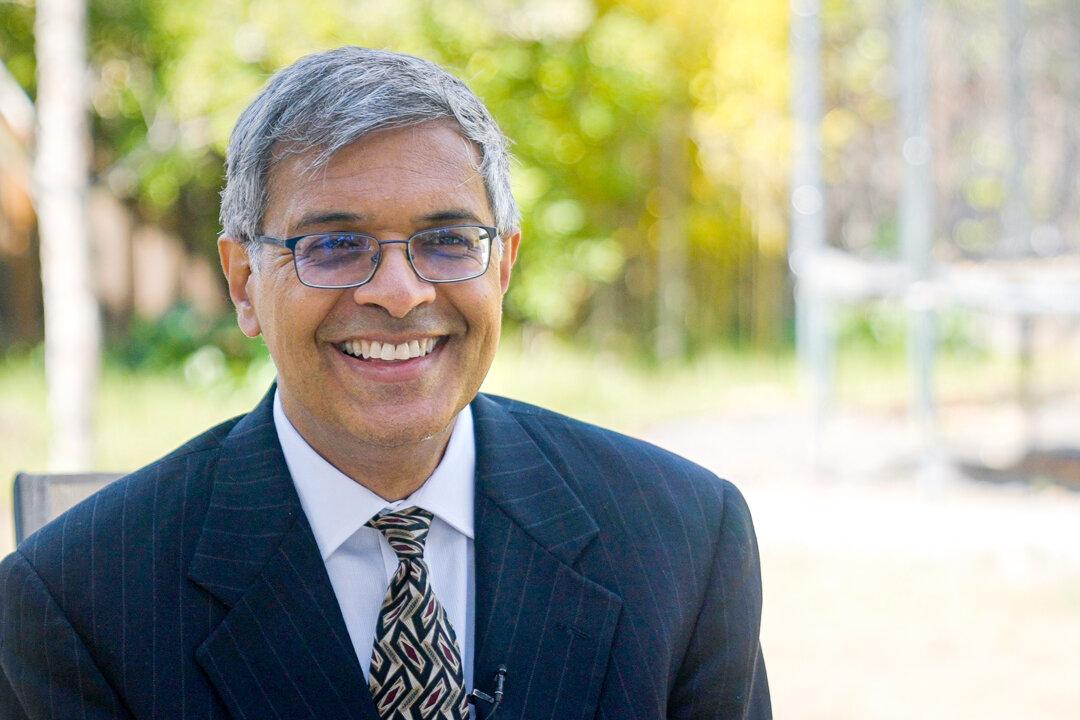Trust in science has been severely impacted by the actions taken by health officials and scientists in response to the COVID-19 pandemic.
“Public trust has been shattered,” Dr. Jay Bhattacharya, a professor at the Stanford School of Medicine and a senior scholar the Brownstone Institute, said during an institute conference on Nov. 13.






